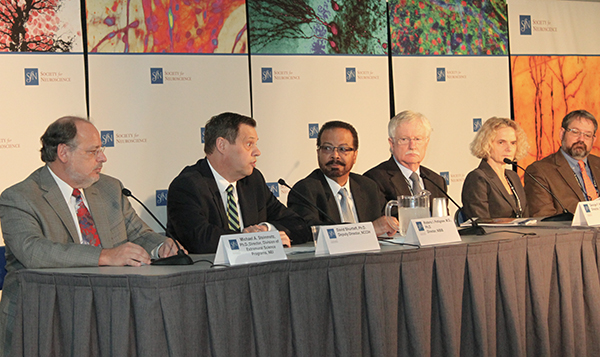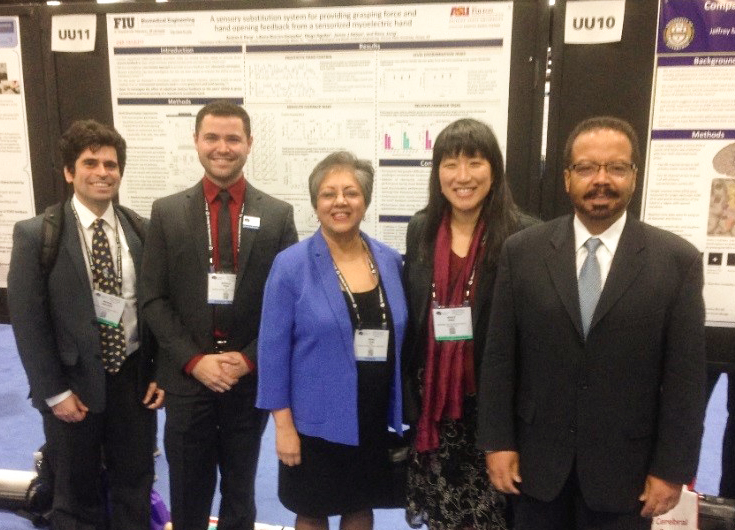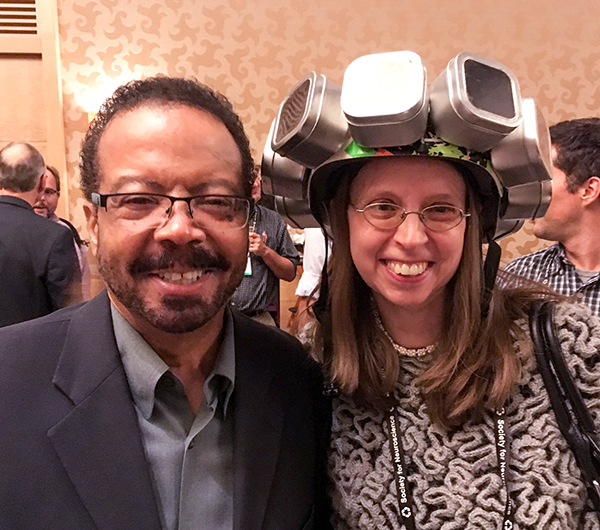Attendance at the 46th annual meeting of the Society for Neuroscience swelled to 30,000 at the height of the five-day meeting this past November at the San Diego Convention Center.

Nine institutes of the National Institutes of Health participated in the meeting, including a contingent from the National Institute for Biomedical Imaging and Bioengineering (NIBIB) led by Director Roderic I. Pettigrew, Ph.D., M.D. Pettigrew greeted current NIBIB grantees and prospective applicants, and presenting highlights of NIBIB-funded research at a media briefing.
”A number of the presentations at this meeting illustrate a growing understanding of how neurological systems are constructed and work, as well as the application of that knowledge to improve on a practical level the health and wellbeing of patients,” Pettigrew said in remarks to reporters at the meeting. He pointed to continuation of the recent gains in clinical research involving spinal stimulation to help people with spinal cord injury. He also noted the functional magnetic resonance imaging advances that have helped establish neurological biomarkers for schizophrenia.

Among the trans-NIH programs garnering attention at the meeting were the Brain Research through Advancing Innovative Neurotechnologies® (BRAIN) initiative that has created research and discovery opportunities within the neuroscience community. NIBIB participates in the BRAIN initiative which has issued three rounds of grant funding since its announcement by President Obama in 2013. BRAIN researchers delivered short presentations during an evening session, including a project led by West Virginia University’s Julie Brefczynski-Lewis to develop the AM-PET, a wearable low-dose positron emission tomography or PET imaging helmet that allows freedom of movement while scanning.

Other research presentations included posters from NIBIB grantees supported by the NIH Stimulating Peripheral Activity to Relieve Conditions or SPARC program. Launched two years ago, SPARC aims to improve the mechanisms through which therapies can stimulate the nervous system to affect organ function.
The gathering of such a large number of scientists also provided NIBIB staff with the opportunity to respond to inquiries about the novel NIBIB funding mechanism called the Trailblazer Award for New and Early Stage Investigators. Announced this past August, the opportunity is open to early-stage researchers who have not had previous NIH funding. Next year’s meeting of the Society for Neuroscience will be held in Washington, D.C.
